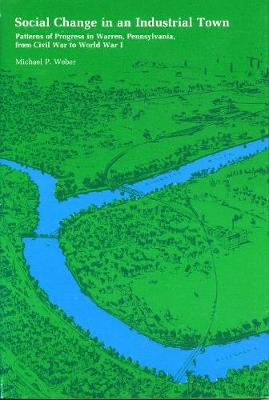Using quantitative as well as verbal data, this book examines the social and geographic mobility of unskilled, semiskilled and skilled workers during the oil boom years of the 1870s and 1880s and the more stable 1890s and 1900s in an industrial town or northwestern Pennsylvania. Also analyzed are the differing rates of mobility or various ethnocultural groups living within the community.
A hamlet in 1813, Warren was a lumber center briefly in the 1840s, then declined because of excessive logging, national depressions, and a disastrous downtown fire. After the first oil strike in 1875, Warren's population grew from 2,000 to 11,000 in just over three decades, having developed varied industries to replace sole reliance on timber or oil.
Dr. Weber traces the origins of the people or Warren-whether native or foreign-born-and their movement, both geographical (including some departures from the community) and social (mostly upward but downward for some). He also considers the factors-public education, acquisition of skills, inheritance of property, and entrepreneurship-contributing to social movement.
The book argues that social mobility was directly related to the industrial growth of the community, introducing extensive comparisons of other 19th-century towns in support of this thesis. Comparisons also suggest that community size and structure influenced both mobility and labor conditions.
- ISBN10 0271012013
- ISBN13 9780271012018
- Publish Date 10 October 1991
- Publish Status Out of Print
- Out of Print 27 January 2021
- Publish Country US
- Imprint Pennsylvania State University Press
- Format Hardcover
- Pages 196
- Language English
